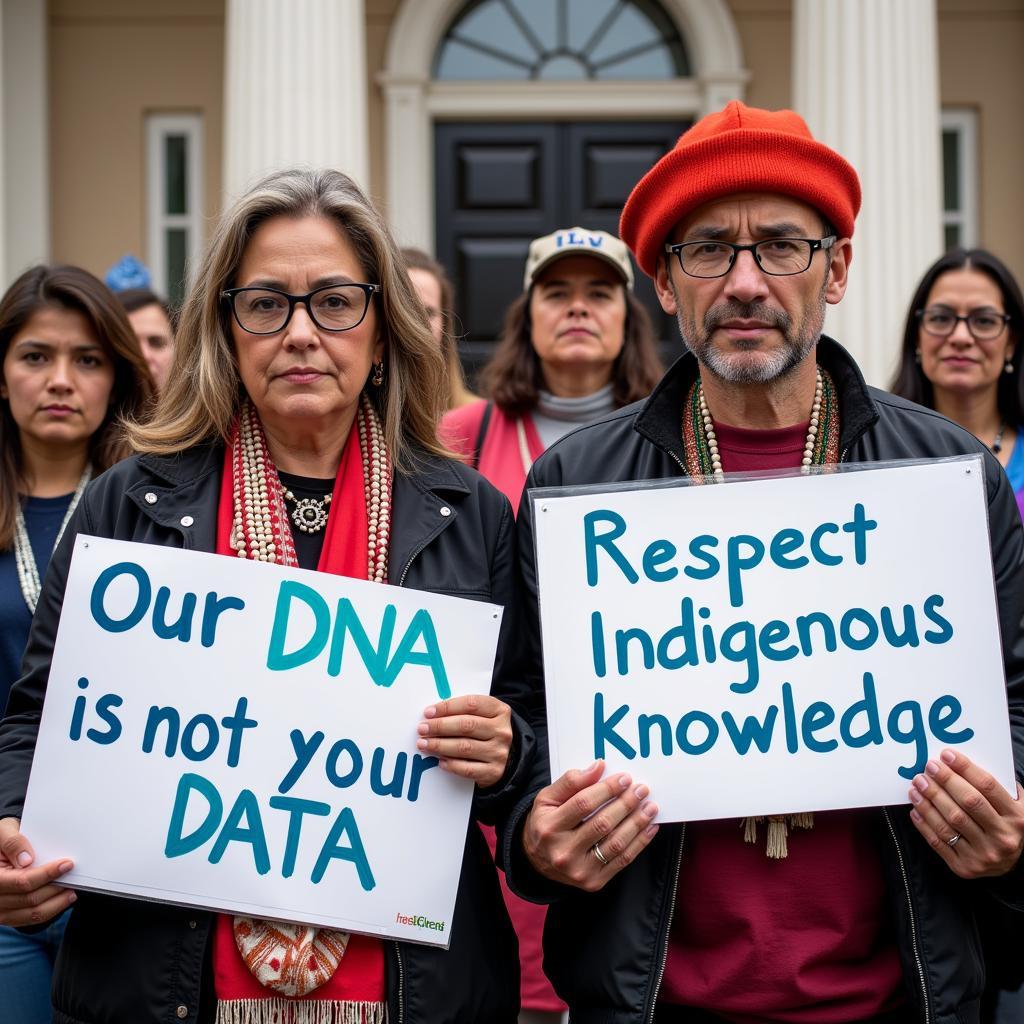An indigenous tribe has successfully won the right to restrict scientific research on its DNA, igniting a complex debate about indigenous rights, scientific progress, and the ethical boundaries of genetic research. This landmark case highlights the growing tension between the pursuit of scientific knowledge and the need to respect the cultural and spiritual beliefs of indigenous communities.
The Intersection of Science and Indigenous Rights
At the heart of this debate lies the fundamental question of who owns genetic information and for what purposes it can be used. For indigenous communities, DNA is not merely a biological blueprint; it represents their history, ancestry, and spiritual connection to their ancestors. The idea of their genetic material being studied without their consent raises profound ethical and cultural concerns.
 Indigenous tribe members holding protest signs
Indigenous tribe members holding protest signs
Many indigenous groups fear that the results of genetic research could be used to challenge their land claims, exploit their resources, or misrepresent their cultural heritage. There are also concerns about the potential for genetic discrimination and the misuse of this information for commercial gain.
Balancing Scientific Inquiry with Cultural Sensitivity
Scientists argue that studying indigenous DNA is crucial for understanding human migration patterns, tracing the origins of diseases, and developing new medical treatments. They emphasize the potential benefits of genetic research for both indigenous and non-indigenous populations.
However, the ethical considerations surrounding informed consent, data ownership, and the potential for cultural harm cannot be ignored.
 Scientists and tribal leaders engaged in a discussion
Scientists and tribal leaders engaged in a discussion
Moving Forward: A Collaborative Approach
This case underscores the need for a more collaborative and respectful approach to genetic research involving indigenous communities. This includes:
- Prior and informed consent: Obtaining explicit consent from indigenous groups before commencing any research involving their DNA.
- Benefit-sharing agreements: Establishing clear guidelines for sharing the benefits of genetic research with indigenous communities, including access to medical advancements and economic opportunities.
- Respect for traditional knowledge: Integrating indigenous knowledge systems and perspectives into the research design and interpretation of findings.
Conclusion
The fight to limit research on indigenous DNA is a victory for indigenous sovereignty and self-determination. It serves as a powerful reminder that scientific progress must not come at the cost of cultural integrity and human dignity. By fostering dialogue, building trust, and prioritizing ethical considerations, we can strive for a future where scientific advancement and the protection of indigenous rights go hand in hand.